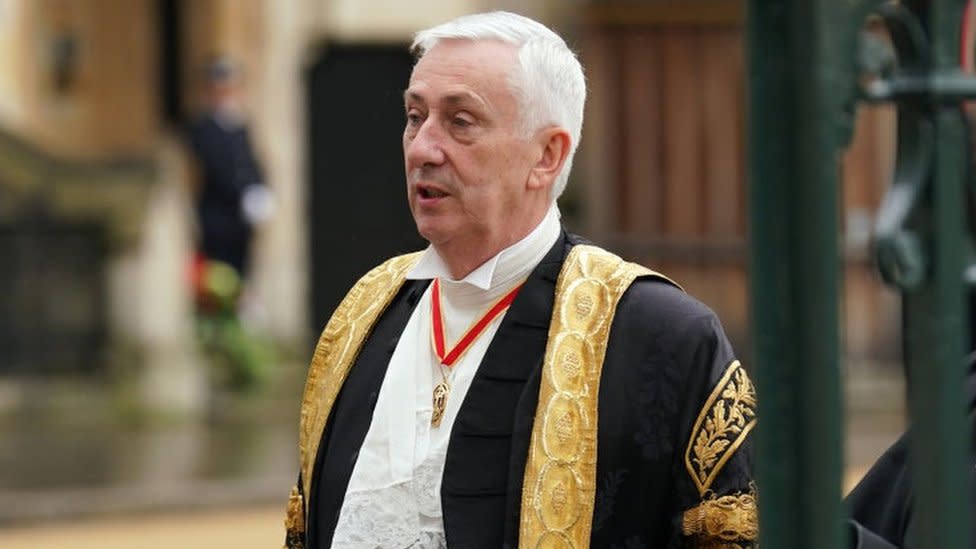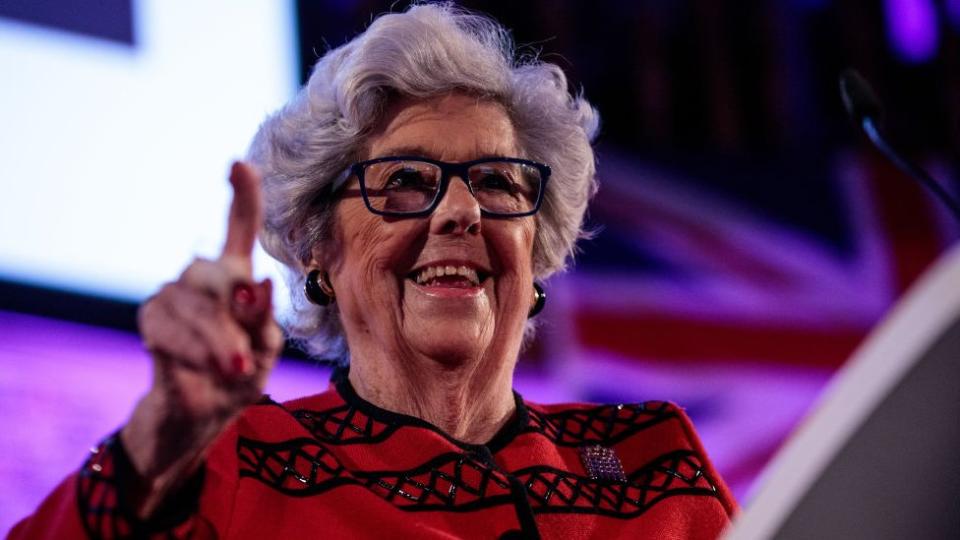Who is the Speaker of the House of Commons and what do they do?

One of the new Parliament's first tasks is to select the Speaker of the House Commons.
Sir Lindsay Hoyle was the Speaker when Parliament was dissolved ahead of the general election, and is expected to continue in the post.
What does the Speaker do?
The role of the Speaker dates back several centuries, but has evolved significantly over time.
The position is politically impartial, so incoming Speakers resign from their political party when they are appointed, but can still undertake work on behalf of their constituents.
The main parties do not usually field candidates against the Speaker at general elections held during their term in office.
The Speaker has a number of important duties:
controlling Commons debates
deciding who can speak
choosing which amendments can be heard
upholding parliamentary rules
allowing urgent questions or emergency debates
exercising the casting vote in the event of a tie
He or she works closely with the Clerk of the House of Commons who advises on parliamentary procedure and constitutional matters.
The Clerk is not an MP or a civil servant, and is also politically neutral.
There are three deputy Speakers.
Former Conservative MP Dame Eleanor Laing was the main deputy Speaker before Parliament was dissolved ahead of the general election and could perform all of the Speaker's duties.
She was awarded a peerage in former Prime Minister Rishi Sunak's dissolution honours, and will now sit in the House of Lords.
The post of House of Lords Speaker was established in 2006, and is currently held by Lord McFall of Alcluith. He was elected for a five-year term in 2021 and his position was not affected by the general election.
How is the Speaker chosen?
The Speaker is elected by a secret ballot of MPs at the beginning of a new Parliament after a general election - or following the death or retirement of their predecessor.
When the House of Commons meets for the first time, MPs are summoned to the House of Lords where they are directed to elect their Speaker.
They return to the House of Commons to make their selection, with the longest continuously serving MP - the so-called Mother or Father of the House, now Conservative MP Sir Edward Leigh - temporarily seated in the Speaker's chair.
If the former Speaker has been re-elected in the general election and wishes to continue in their post, a secret ballot is not necessary.
They can be reappointed if a majority of MPs vote in their favour, at which point they become the Speaker-elect.
As part of the process, the successful candidate pretends to be reluctant to take up the role and is physically dragged to the Speaker's chair by other MPs.
Later that day or the following day, MPs are again summoned to the House of Lords where the Speaker-elect formally becomes Speaker.
If the former Speaker is not re-elected by a majority of MPs, a new secret ballot must be held.
Who is Sir Lindsay Hoyle?
Sir Lindsay became Speaker on 4 November 2019, following the resignation of John Bercow.
Originally elected to Parliament as Labour MP for Chorley, Lancs in 1997, he had served as deputy speaker since 2010.
He was knighted in the 2018 New Years honours.
Sir Lindsay has several pets named after politicians, including Dennis and Patrick the cats, Gordon and Betty the dogs, parrot Boris, and tortoise Maggie.
His father Doug Hoyle served as Labour MP for Nelson and Colne from 1974 to 1979, and for Warrington from 1981 to 1997, before becoming a Labour Peer.
Lord Hoyle retired from the House of Lords in 2023, and died in April 2024.
Can the Speaker be sacked?
There is no formal mechanism for MPs to oust a current Speaker from their role.
Erskine May, the "bible" of parliamentary procedure, explains that once elected, the Speaker "continues in that office during the whole Parliament, unless in the meantime they resign or are removed by death".
However, MPs can criticise the Speaker by putting down a motion against them. The government of the day can then provide time for it to be debated on the floor of the House.
Only three such motions have been debated since World War Two, according to the Institute for Government.
Michael Martin, who served in the role from 2000 to 2009, stepped down after criticism of his handling of the MPs' expenses scandal.
He said he resigned in order to maintain the unity of the House of Commons.
What happens after Speakers step down?
Former Speakers are traditionally offered a life peerage in the House of Lords.
The first female Speaker, Betty Boothroyd, spent more than 20 years in the Lords, until her death in 2023.

Elected as the Labour MP for West Bromwich West in 1973, Baroness Boothroyd served as Speaker between 1992 and 2000.
However, when he stepped down in 2019, Mr Bercow became the first Speaker for 230 years not to be nominated for the Lords.
Mr Bercow had been accused of bullying by his former colleagues.
He told BBC Radio 4's Any Questions that he had "made a lot of enemies" during his 10-year stint in the Commons, but denied he had bullied anyone.


